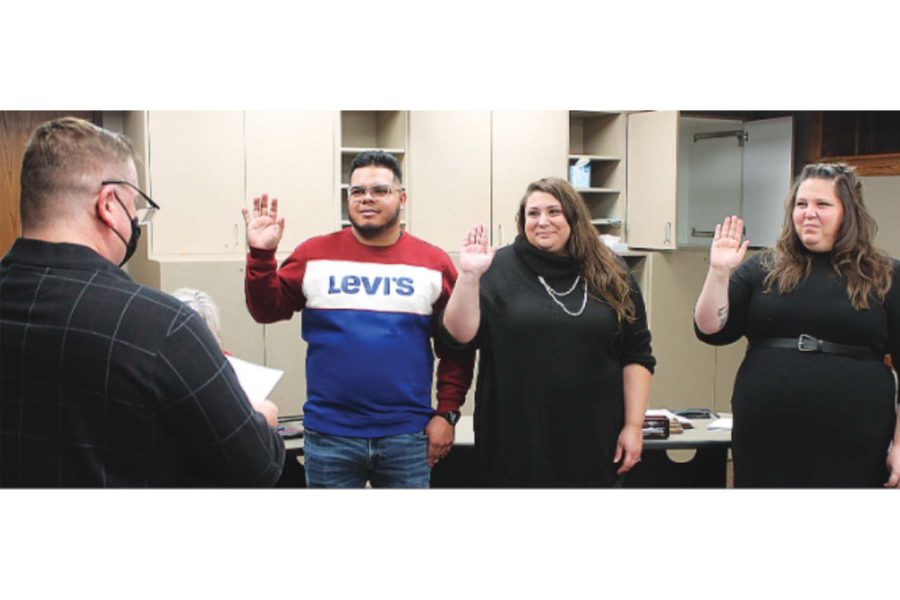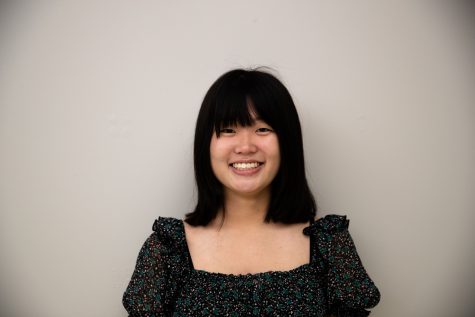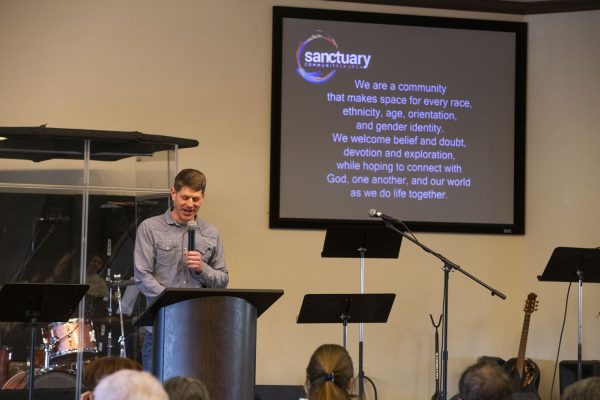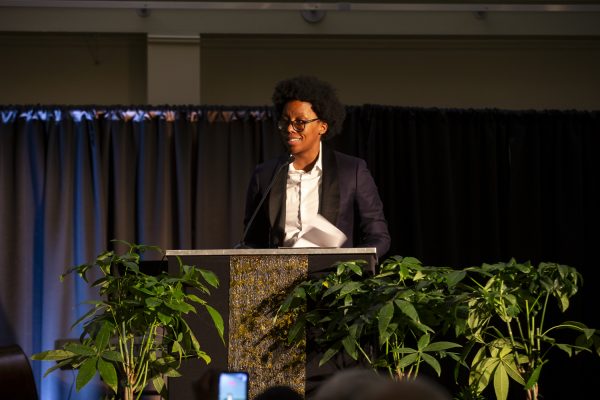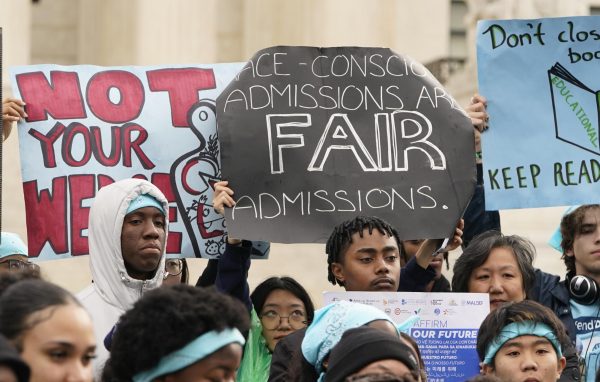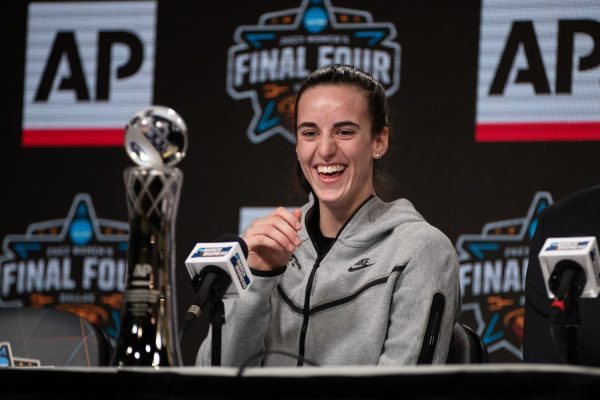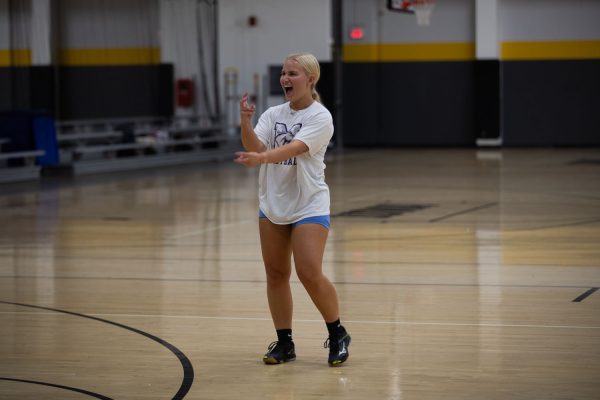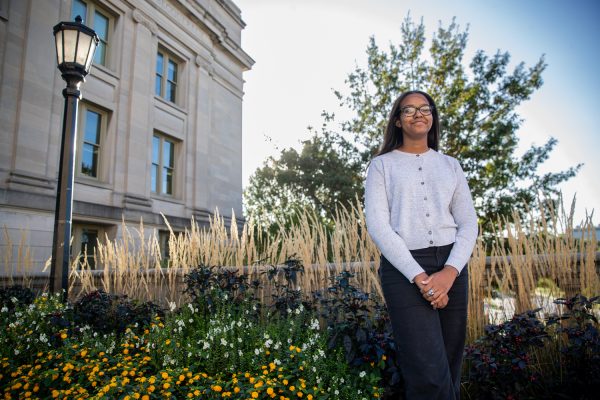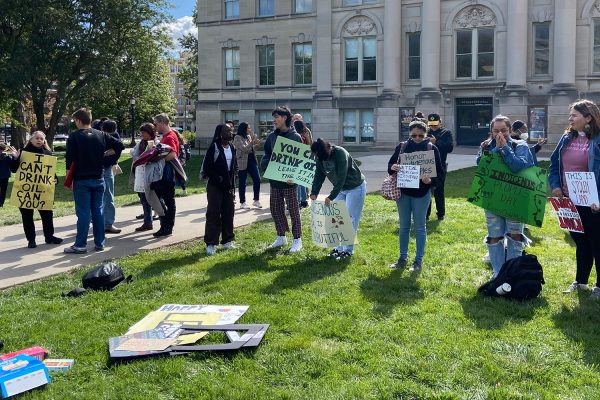UI faculty make impact in translating diverse population into representation in West Liberty
West Liberty, Iowa’s first latino majority hispanic town, now has a Latino-majority city council.
February 1, 2022
Dana Dominguez comes from a family of firsts.
Her aunt served as the first Latina Alderman in Moline, Iowa, and her dad was the first Latino police officer in West Liberty, Iowa. This year, Dominguez followed in her family’s footsteps when she was elected to the West Liberty City Council — the first Latino-majority city council in Iowa.
West Liberty became Iowa’s first Latino and Hispanic-majority town about 10 years ago. The Muscatine County city is not the first place to challenge the idea of a homogenous white rural America — the eastern Iowa town is one of thousands of majority-minority rural communities in the U.S. In 2020, 58.3 percent of the population identified as Hispanic, followed by 37.7 percent who identified as white, and 1.7 percent as Asian.
But it wasn’t until this year that West Liberty’s Latino-majority population was represented by a Latino-majority city council. Alongside Dominguez, Omar Martinez, Jose Zacarias, Cara McFerren, and Diane Beranek serve on the council, along with Mayor Katie McCullough.
Dominguez, associate director of operations and communication at the University of Iowa Pomerantz Career Center, grew up in West Liberty and comes from a family of immigrants. Her great-grandfather immigrated from Coahuila, Mexico, to Del Rio, Texas.
Years later, Dominguez’s father followed her aunts and uncles to Iowa because he needed work, and the state offered jobs at a meat-packing plant.
At first, Dominguez, a single mother, didn’t notice the lack of representation on the City Council. But as she grew up, she noticed that there was diverse representation in many areas of the town, like on school boards. But a lack of representation persisted in one key area — the city council.
Dominguez said she decided to throw her name on the ballot because she had seen communities of color hit hard because of a lack of government policy and wanted to make a difference. Over the years, social justice came to the forefront of Dominguez’s work and part of her campaign, she said. She participated in immigration rallies and sat on the UI Latinx Council.
“The Latinx culture and heritage is so different and unique and diverse, and there’s certain issues where we’re all affected,” Dominguez said.
Dominguez said the diversity has a powerful impact because community members feel more trusting and comfortable coming to city council members.
One reason Dominguez was motivated to run was to fight for excluded and essential workers left out of COVID-19 relief funds, such as undocumented immigrants. Now that she’s on the council, Dominguez said she hopes these workers feel optimistic when approaching the council because it has a diverse representation of Latino and Hispanic people.
“Just having representation, and not having representation, but having a diverse variety of representation among the Latino community just between us four is really powerful and can allow people to feel more comfortable coming to the city when they need support,” Dominguez said.
Dominguez aims to be more transparent and provide more communication from the council to community members. One her first actions was to write to the City Clerk and obtain translators to talk to families in their language.
Other priorities for Dominguez include translating meeting minutes into multiple languages, including Spanish, and strengthening the budget system by partnering with organizations who provide grants.
Now, she hopes that young students can see themselves as leaders. The day after she was elected, Dominguez was recognized by a student at the Latinx Youth Summit at the Iowa Memorial Union.
“I presented with one of my staff members, and as soon as a couple of them trickled in, and it was a full house, one of them recognized me from West Liberty and went ‘Hey, you’re that councilwoman who won last night,’” Dominguez said.
Dominguez said she hopes that having representation on the council will encourage more people to run in the future. She noted she believes that people from Hispanic and Latino backgrounds sometimes work six to seven days per week, preventing them stepping into leadership positions.
But Dominguez said she has seen Latino networks not just in Iowa, but across the Midwest, become empowered and wanting to make a difference by taking service positions.
“When you have this lifestyle where all you know is work, you don’t really think about things that affect you on the city level or that I can do something,” Dominguez said. “Through the years, there have been some Latino families who came out of the woodwork and took some positions with the school board.”
Data visualization by Kelsey Harrell/The Daily Iowan
Elizabeth Lara, director of Diversity, Equity, and Inclusion in the UI Graduate College, said that Dominguez assuming this role was a natural step for her. Lara and Dominguez worked together on the UI diversity resources team and created training based on their experience and expertise.
As someone who recently moved to West Liberty, Lara said she hopes that representation on the city council will inspire others.
“I hope that this gives other citizens some empowerment and encourages folks to continue to seek city council positions and be a part of the change in the community,” Lara said.
West Liberty’s City Council, however, is not the only area diversifying representation. Katie McCullough, UI program administrator for the School of Library and Information Science, was elected as West Liberty’s first female mayor.
Although McCullough always knew that she wanted to run for office, the decision started as out as a half-serious idea between her and Dominguez.
“It started as a joke because we wanted backyard chickens, and then it very quickly became quite serious,” McCullough said. “It evolved from wanting chickens to actually wanting to help people and seeing the needs that were in our community and knowing we were bright and excited to help bring the community together.”
Though McCullough said she is an extroverted person, the most difficult part of the campaign was still getting signatures for her name on the ballot. As part of her campaign, she would go to events and talk to 25 to 30 people and hear their stories, which opened her eyes to opinions about how the town was being run.
McCullough didn’t know that she was the first female mayor until she was elected. She said there’s not enough women in leadership positions and hopes this will lead to more young women taking a seat at the table.
McCullough believes that women during the pandemic have been women have been bogged down by “invisible and unpaid labor” during the pandemic, such as when taking care of their children, which presents financial barriers for women to run for these positions.
“We don’t necessarily see ourselves in these positions, so we don’t know it’s a possibility for us,” McCullough said. “As females, we do it all.”
As mayor, McCullough sees herself as a listener for the community and someone who helps fit the pieces of the puzzle of what everyone wants together. One of her goals is to create a health center for the community and population growth to highlight the diversity the town has to offer.
“I would love for us to become the next North Liberty or Tiffin,” McCullough said. “We have so many cool cultures represented in our town that I feel we could really showcase that.”



